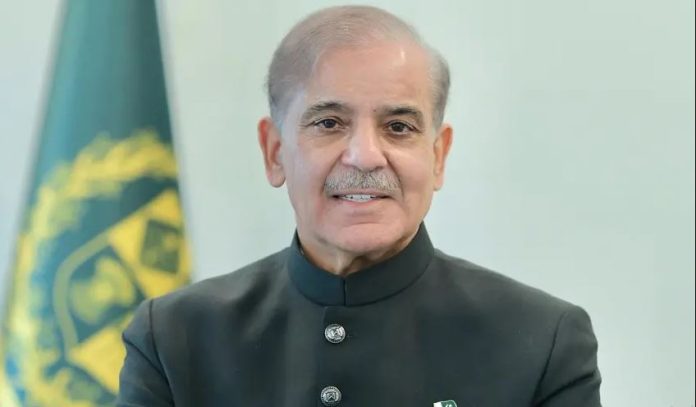DM Monitoring
NEW YORK: Prime Minister Shehbaz Sharif, in his address to the 79th session of the United Nations General Assembly (UNGA), reaffirmed Pakistan’s unwavering support for the Palestinian cause, stressing that the establishment of an independent Palestinian state with Al-Quds Al-Sharif as its capital is imperative for lasting peace in the Middle East, media reported.
During his UNGA address, PM Shehbaz Sharif said the plight of the people of Gaza had become a “stain on the world’s conscience and a collective moral failure,” condemning Israel’s ongoing bombardment and occupation as the “darkest chapter of modern history.”
Referring to the cries of children under Israeli fire, the Prime Minister lamented that “humanity failed when it could not save little Hind Rajab or countless others,” calling for an immediate ceasefire in Gaza and an end to illegal settlements in the West Bank.
The Prime Minister underscored that Pakistan was among the first countries to recognize the State of Palestine and continues to support its full sovereignty within pre-1967 borders. He welcomed the growing recognition of Palestine by other nations, urging the international community to take decisive action.
Turning to regional issues, Shehbaz Sharif told UNGA that Pakistan is committed to peaceful coexistence and resolving disputes through dialogue, in line with the vision of the country’s founding father.
He reiterated Pakistan’s offer of comprehensive and result-oriented talks with India. However, he condemned New Delhi’s actions in Jammu and Kashmir, warning that the unresolved dispute remains a “dangerous flashpoint between two nuclear-armed nations.”
Prime Minister Shehbaz Sharif accused India of violating human rights in Kashmir and attempting to unilaterally undermine the Indus Waters Treaty, vowing that Pakistan would defend its rights over water. He warned that any breach of the treaty amounted to an act of aggression.
Recalling cross-border hostilities earlier this year, the Prime Minister said Pakistan exercised its right of self-defense under Article 51 of the UN Charter.
He praised the armed forces, under the leadership of Field Marshal Asim Munir and Air Chief Marshal Zaheer Ahmad Babar, for their “unparalleled courage” and said India’s aggression was met with a decisive response that will be remembered in history.
The premier also thanked U.S. President Donald Trump and UN Secretary-General António Guterres for their “timely and decisive intervention,” which helped prevent a full-scale regional war and brought about a ceasefire.
On global challenges, Shehbaz Sharif highlighted the dangers of terrorism, Islamophobia, and climate change. He reminded the Assembly that Pakistan has lost over 90,000 lives and suffered $150 billion in economic losses due to terrorism, yet continues to face new waves of externally-sponsored militancy.
He stressed that Pakistan’s security forces are determined to eliminate every last terrorist group, including the TTP, BLA, and other outfits operating from Afghan soil.
The Prime Minister also pointed to Pakistan’s vulnerability to climate change, recalling the devastating floods of 2022 and 2025 that caused billions of dollars in losses and displaced thousands.
He called for the declaration of a “global climate emergency” and demanded that major carbon emitters fulfill their commitments to vulnerable countries.
PM Shehbaz Sharif concluded by reaffirming Pakistan’s commitment to multilateralism, regional peace, and global justice. “We have won the war; now we want to win peace,” he said, pledging that Pakistan will continue to raise its voice for Palestine, Kashmir, and all oppressed peoples around the world.



